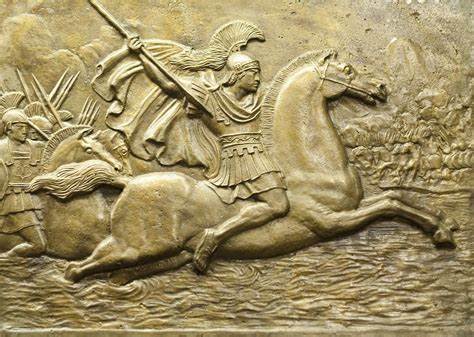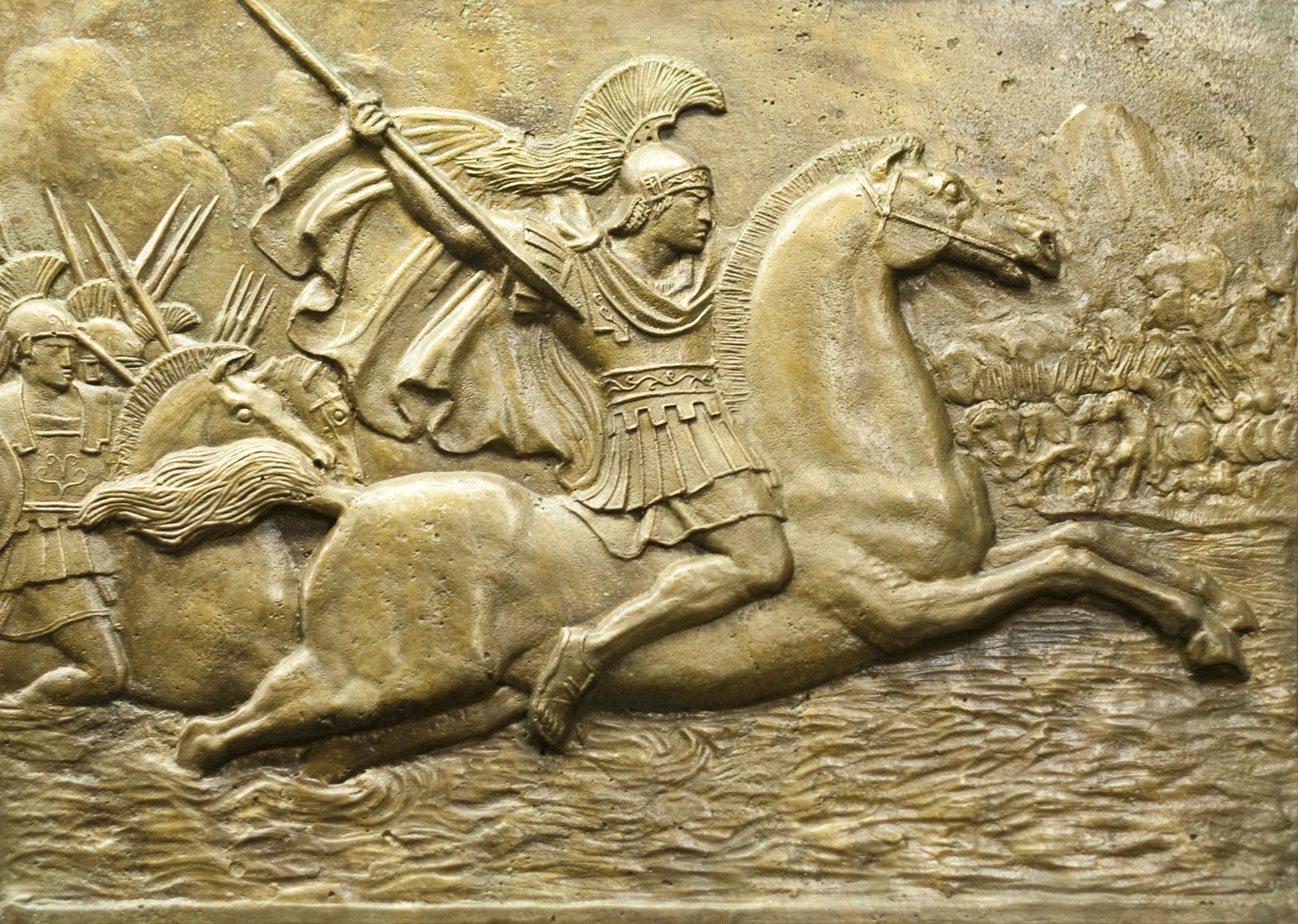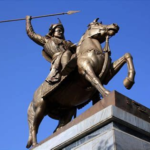In the annals of history, few names shine as brightly as Alexander III of Macedon, commonly known as Alexander the Great. This ancient Greek king and conqueror has captivated the imagination of people for centuries, and his legacy continues to inspire and awe. As a historian, I invite you to join me on a thrilling journey through the life and times of this extraordinary individual, whose impact still resonates today.

Early Life and Succession
Born in 356 BCE in Pella, Macedonia, Alexander was the son of King Philip II and Queen Olympias. His father, a renowned military leader, instilled in Alexander a passion for warfare and leadership. After Philip’s assassination in 336 BCE, Alexander succeeded him at just 20 years old.
Conquests and Empire Building
Alexander’s military campaigns are the stuff of legend. He conquered a vast portion of the known world, creating one of the largest empires in history. His victories stretched from Greece to India, leaving behind a trail of founded cities, including Alexandria in Egypt. He defeated the Persians, Babylonians, and Egyptians, incorporating their territories into his empire.
Military Tactics and Innovations
Alexander’s military genius lay in his adaptability, tactical brilliance, and ability to inspire loyalty. He introduced the use of phalanx formations, lightning-fast cavalry attacks, and siege engines. His armies were a testament to his leadership, comprising diverse troops from various conquered lands.
Legacy and Impact
Alexander’s legacy extends far beyond his military conquests. He spread Greek culture, language, and philosophy throughout his empire, laying the groundwork for the Hellenistic period. He founded over 70 cities, established trade networks, and promoted religious tolerance. His reign marked the beginning of a new era in human history, bridging East and West.
Personal Life and Mythology
Alexander’s personal life has sparked endless fascination. His relationships with Hephaestion, Ptolemy, and Roxana have become the stuff of legend. His divinity was proclaimed during his lifetime, and his mythological status has endured for centuries.

